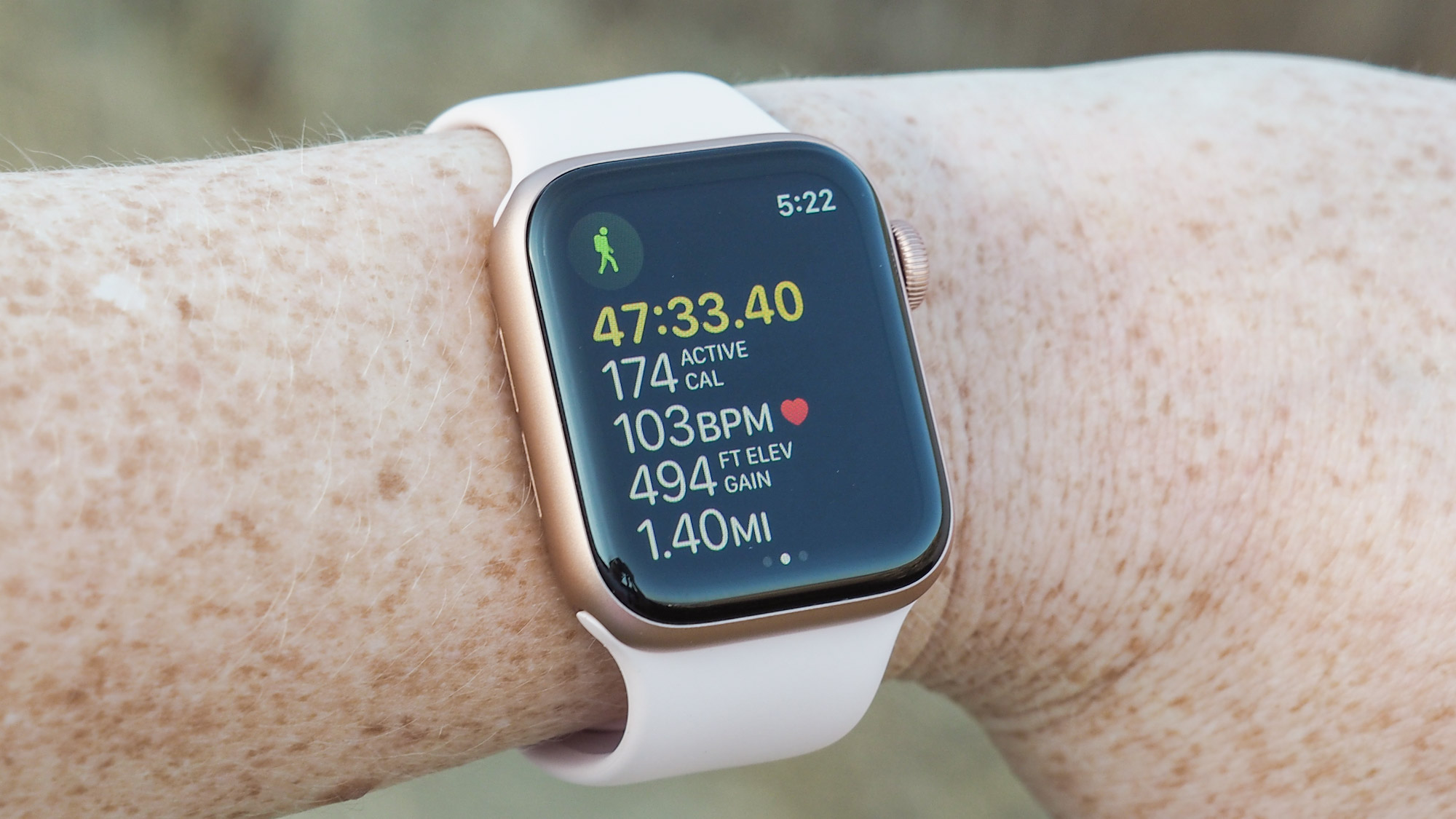Apple Watch 7 killer upgrade teased in new survey
Apple Watch 7 looks more even likely to have blood glucose monitoring, based on a recent Apple survey

Persistent rumors about a future Apple Watch’s benefit to diabetics and weight watchers just got a bit more extra credence from Apple itself.
A Brazilian reader of 9to5Mac was sent a survey enquiring about Apple Watch health-tracking habits and asking which of the current watchOS features are the most useful. The survey then went on to ask respondents whether they use third-party apps to track workouts track and eating habits and, crucially, whether they use apps to monitor medications and blood sugar levels.
- The best smartwatches you can buy
- Apple Watch 6 vs. Samsung Galaxy Watch 3: Which smartwatch is best?
- PLUS: iOS 14.6 promises boosted AirTag tracking, design tweaks and more
It’s more evidence that the company’s long-running ambition to launch an Apple Watch with built-in non-invasive blood glucose monitoring is close to being fulfilled. While an Apple survey isn’t cast-iron proof as such, they have often signalled the way the company will imminently turn, as anybody who received the survey about old iPhone chargers will know.
The Holy Grail of health tracking
Blood glucose tracking has been a target for Apple for years, and CEO Tim Cook was even seen wearing what appeared to be a prototype device way back in 2017.
The long road to it becoming a feature is a reflection of both how difficult the challenge is, and the importance of getting it right. While blood sugar levels are a useful metric for people looking to lose weight, for diabetics the knowledge is of paramount importance, and a flakey, inaccurate sensor just wouldn’t do.
But if the implementation is done right, it could be a game changer — not least because the current medical-grade hardware is so expensive. As we explained last year, some third-party hardware is compatible with Apple Watch, but it’s extremely expensive. A continuous monitoring system such as Dexcom costs $245 for transmitters and $1,035 for a three-month supply of sensors, and even a cheaper manual system like One Drop costs between $31 and $90 a month, depending on how many daily tests you administer.
Last week, rumors of Apple’s plans became even stronger when it was revealed that the company was the biggest customer of Rockley Photonics, a U.K. business that specializes in accurate sensors for various blood signals including glucose and alcohol levels. In its SEC documents, Rockley claims that its lasers offer “up to 1,000,000 times higher resolution, 1,000 times higher accuracy and 100 times broader range in wavelengths” than existing wearable LEDs.
Sign up to get the BEST of Tom's Guide direct to your inbox.
Get instant access to breaking news, the hottest reviews, great deals and helpful tips.
That all sounds very promising, but the big question is whether this implementation will make the Apple Watch 7, or whether it won't arrive until the 2022 version of the wearable. Rockley CEO Andrew Rickman said he expected the technology to be in wearables next year, which certainly makes it sound like an Apple Watch 8 thing.
But that’s not to say that Apple won’t have something in place for the Apple Watch 7. It wouldn’t be the first time the company had introduced a basic feature and then improved it over subsequent generations, after all.
Freelance contributor Alan has been writing about tech for over a decade, covering phones, drones and everything in between. Previously Deputy Editor of tech site Alphr, his words are found all over the web and in the occasional magazine too. When not weighing up the pros and cons of the latest smartwatch, you'll probably find him tackling his ever-growing games backlog. Or, more likely, playing Spelunky for the millionth time.

